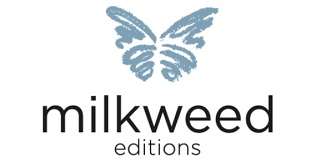Though the dog days of summer may be, thankfully, weeks away, now is the perfect time to submit to contests with a May 31 deadline! Don’t miss the opportunity to win over $6,000 and publication in poetry and short story categories; an emerging writer fellowship offering $5,000, plus the chance to meet editors and agents; or a $10,000 cash prize for a debut poetry collection, among other awards. These contests have renowned judges such as Toi Derricotte, Louise Glück, Lori Ostlund, and Kirk Wilson. All awards and fellowships offer a prize of $1,000 or more. Best of luck, writers!
Anhinga Press
Anhinga Prize for Poetry
A prize of $2,000, publication by Anhinga Press, and 25 author copies is given annually for a poetry collection. Entry fee: $25 ($28 for electronic submissions).
Autumn House Press
Literary Prizes
Three prizes of $1,000 each and publication by Autumn House Press are given annually for a poetry collection, a book of fiction, and a book of creative nonfiction. Each winner also receives a $1,500 travel and publicity grant. Toi Derricotte will judge in poetry, Pam Houston will judge in fiction, and Jenny Boully will judge in nonfiction. All entries are considered for publication. Entry fee: $30.
BOA Editions
Short Fiction Prize
A prize of $1,000 and publication by BOA Editions is given annually for a story collection. BOA publisher Peter Conners will judge. Entry fee: $25.
Bridport Arts Centre
Bridport Prizes
Two prizes of £5,000 (approximately $6,034) each and publication in the Bridport Prize anthology are given annually for a poem and a short story. A second-place prize of £1,000 (approximately $1,207) and publication is also given in each category. Additionally, a prize of £1,000 (approximately $1,207) and publication is given for a work of flash fiction. Roger Robinson will judge in poetry, Colin Barrett will judge in short story, and Christopher Allen will judge in flash fiction. Entry fee: £12 (approximately $14) for poetry, £14 (approximately $17) for fiction, and £11 (approximately $13) for flash fiction.
The Center for Fiction
Susan Kamil Emerging Writer Fellowships
Nine fellowships of $5,000 each, a one-year membership to the Center for Fiction in New York City, and a year of access to the Writers Studio writing space at the center are given annually to fiction writers living in New York City who have not yet published a book of fiction. Winners also have the opportunity to meet with editors and agents who represent new writers, and to receive critical feedback on their work from an editor. Applicants who on June 1, 2023, will be enrolled in a degree-granting program or are currently under contract with a publisher for a work of fiction are ineligible. Entry fee: none.
Elixir Press
Fiction Award
A prize of $2,000, publication by Elixir Press, and 25 author copies is given annually for a story collection or a novel. Kirk Wilson will judge. Entry fee: $40.
Milkweed Editions
Max Ritvo Poetry Prize
A prize of $10,000 and publication by Milkweed Editions is given annually for a debut poetry collection by a U.S. poet. Louise Glück will judge. Entry fee: $25.
Southern Poetry Review
Guy Owen Prize
A prize of $1,000 and publication in Southern Poetry Review is given annually for a single poem. Entry fee: $20, which includes a subscription to Southern Poetry Review.
University of Georgia Press
Flannery O’Connor Award for Short Fiction
A prize of $1,000 and publication by University of Georgia Press is given annually for a collection of short fiction. Lori Ostlund will judge. Entry fee: $30.
Visit the contest websites for complete guidelines, and check out the Grants & Awards database and Submission Calendar for more contests in poetry, fiction, creative nonfiction, and translation.





